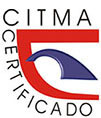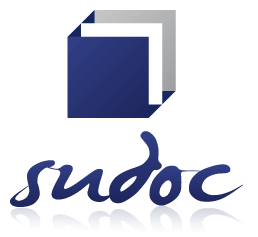Cuban chamber music at the beginning of the 21.st century: Yalil Guerra and Old Habana
Keywords:
musical composition, identity, cultural codes, Chamber musicAbstract
ABSTRACT
Introduction: By studying the musical framework of Cuban composers who are located in a foreign environment, we approach a process of connections that includes different points of view and that, in turn, are discursively intertwined in a scenario that builds cultural codes that reinforce the identity. Within this framework, the work provides special analytical attention to the production of Chamber music by Yalil Guerra Soto (1973).
Methods: In this research, the analysis proposal based on the enactive criterion is developed, that is, multivalent and interacting relationships that are unleashed in recipient-creator individuality from specific topics evoked, considering that every analyst is in turn a perceiving subject. -Creative of the work he faces. For traditional historiography, Chamber music is linked to a number of members of an instrumental/vocal format of genres established at the time of classicism, which are performed in a relatively small and intimate space.
Results: We focus on an analytical approach to his musical proposal Old Havana by the composer and guitarist Yalil Guerra for its interconnections between academic and popular music. The sound context exposes a traditional string quartet. The timbre image is conventional, but in turn contains a range of profiles that support the discourse and combine effects of semantic interconnection, giving it a unique aesthetic vision. The alternation of compass according to the discursive requirement is notable, acquiring diversity in the development sections.
Conclusions: the cameral concept extends its scope to the genres considered folkloric or popular, interweaving a unifying thought that describes music as a whole. We analyse and corroborate in the work of Yalil Guerra, the resignification, of the sound world of traditional Cuban popular music in an academic context.
Downloads
References
Brouwer, L. (1989). La música, lo cubano y la innovación. La Habana: Editorial Letras Cubanas.
Boulez, P. (1963). Relevés d’apprenti. Paris: Éditions Du Seuil Jalons (pour#une#décenie) Paris: Christian Bougeois Éditeur.
De la Torre, C. (2019). Las identidades: una mirada desde la psicología. Premio de la Crítica de la Fundación Fernando Ortiz. La Habana.
Guerra, Y. (2020). Al Partir, obra de Yalil Guerra interpretada por la Camerata Romeu. http://open.spotify.com
Hernández, J. (2009). Música culta, Música popular. Entrevista realizada por Jesús Hernández Cuellar a Yalil Guerrra. Disponible en: https://dispace.ucuenca.edu.es/pdf
Martí, J. (2004). Transculturación, globalización y músicas de hoy. Revista Transcultural de Música Boletín de Música No.8. Disponible en http://www.casadelasamericas.org
Molerio, A. (2009-2010). Música académica cubana del siglo XXI. Un enfoque analítico de la producción de cámara realizada por compossitores cubanos residentes fuera del país. Tesis de Maestría en Pedagogía e Investigación Musical. Facultad de las Artes, Escuela de Música. Universidad de Cuenca, Ecuador.
Ortiz, F. (1963). Contrapunteo cubano del tabaco y el azúcar. Primera Edición, 1940. La Habana: Consejo Nacional de Cultura.
Rodríguez, M. (2019). Tendencias de lo nacional en la creación instrumental cubana contemporánea 1947-1980. Tesis Doctoral del Departamento Arte Contemporáneo, Universidad Complutense de
Madrid. Disponible en: https://1library.co
Ross, I. (2000). Las interconexiones dialogísticas del arte musical contemporáneo. Disponible en: http://www.casa.co.cu>musicologia
Sigal, R. (2009). Implementación de ideas en el Lenguaje, discurso y significado en la música Electroacústica. Archivo de la Biblioteca de la Universidad de Cuenca. Disponible en: http://www.casa.co.cu>musicologia
Zampronha, E. (2000). La construcción del sentido musical. Estudios transdisciplinares. FAPESP, p. 7. Sao Pablo: Arte y Cultura.
Downloads
Published
How to Cite
Issue
Section
License
Copyright (c) 2022 Arleti María Molerio Rosa

This work is licensed under a Creative Commons Attribution-NonCommercial 4.0 International License.
Usted es libre de:
Compartir — copiar y redistribuir el material en cualquier medio o formato
Adaptar — remezclar, transformar y construir a partir del material
La licenciante no puede revocar estas libertades en tanto usted siga los términos de la licencia
Bajo los siguientes términos:
Usted es libre de:
Atribución — Usted debe dar crédito de manera adecuada, brindar un enlace a la licencia, e indicar si se han realizado cambios. Puede hacerlo en cualquier forma razonable, pero no de forma tal que sugiera que usted o su uso tienen el apoyo de la licenciante.
NoComercial — Usted no puede hacer uso del material con propósitos comerciales.
No hay restricciones adicionales — No puede aplicar términos legales ni medidas tecnológicas que restrinjan legalmente a otras a hacer cualquier uso permitido por la licencia.


















